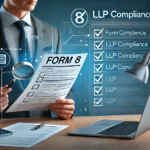Rule 86B of CGST Rules , 2017
What is Rule 86B
The Central Board of Indirect Taxes and Customs (CBIC) has introduced new rule 86B vide notification number 94/2020 dated 22nd December, 2020. Rule 86B is made effective from 1st January 2021.
Restriction Imposed under Rule 86B
The applicable registered persons cannot use ITC more than 99% of output tax liability. In simple words, more than 99% of the output tax liability cannot be discharged by using input tax credit. Balance 1% of the output tax liability needs to be discharged from electronic cash ledger.
Let us understand this with the help of an example:
A taxpayer Mr A has made a sale of goods valued at Rs. 50 Lakh on which tax rate is 18%.His Tax liability is Rs.9,00,000/-. In this case, he can discharge his liability up to 99% through ITC and must pay Rs. 9,000 in cash, being 1%, as per this rule.
Applicability of Rule 86B:
Rule 86B is applicable to the registered person having value of taxable supply (other than exempt supply and zero-rated supply) in a month exceeding Rs.50 lakh.
Therefore, in cases wherein value of taxable supply in a month is up to Rs.50 Lakh, then these restrictions would not applicable
Exceptions to the Rule 86B
If the persons mentioned below have paid more than Rs.1 lakh as Income Tax under Income Tax Act, 1961 in each of the last two financial years for which the time limit to file the income tax return under Section 139(1) of the said Act has expired:
- The registered person
- Proprietor, Karta or Managing Director of the registered person
- Any of the partners or whole-time directors or any other person as the case may be
If the registered person under concern has received a refund of amount greater than Rs.1 lakh in the preceding financial year on account of export under LUT or due to inverted tax structure.
If the registered person under concern has discharged his liability towards output tax by electronic cash ledger for an amount more than 1% cumulatively of the total output tax liability up to the said month in the current financial year
If the registered person under concern is any of the following:
- Government Department or
- a Public Sector undertaking or
- a Local authority or
- a statutory body
However, the Commissioner or an officer authorized by him in this behalf may remove the said restriction after such verifications and such safeguards as he may deem fit.
Impact of Rule 86B on businesses & working capital
After going through the above restrictions and exceptions introduced by Rule 86B, the above rule is applicable only to the large taxpayers. There will be no impact on micro and small businesses.
The motto behind the introduction of this rule is to control the issue of fake invoices to use the fake input tax credit to discharge liability. Further, it restricts fraudsters from showing high turnovers without having any financial credibility.
CBIC has further clarified that 1% is to be calculated on the tax liability in a month and the turnover of the respective month.
Author
Salman Khan
Audit Assistant Muralidhar and Naveena Associates








